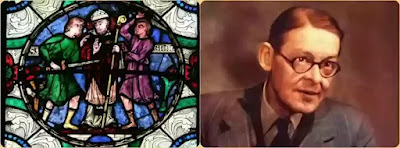Also Read
Eliot's play would be subject to misinterpretation if considered from the naturalistic point of view. If we apply the naturalistic standard of characterization, Becket's can be found to be a flawed characterization. Helen Gardner, for example, says the Becket can hardly be said to be tempted; that there is no time for inner development as the play opens so near to its climax. And she says that the last temptation is too subtle for the audience to judge whether Thomas has indeed overcome it at all or not.
It is true that the first three temptations are indeed retrospective in nature and as such do not pose a serious threat to Thomas. But apparently they still linger in Thomas's mind and have not completely lost their hold. The impossible still tempts, the undesirable still lurks in the subconscious, detracting the mind from the present. It is significant that the temptations are increasing of a more dangerous and serious kind and become more difficult to resist. One cannot say that the last temptation is simply set aside and not overcome. It is definitely the most serious and the greatest that Thomas has to face and fight. It has to be taken for granted says Helen Gardner, that Thomas dies with a pure will. Well there is nothing wrong in accepting Thomas's words as true when he says, "Temptation shall not come in this kind again." As D.E. Jones remarks: "Nothing that Thomas does after this contravenes' thee statement. To expect more than this is to misunderstand the nature of Eliot's art.
Considering the conflict between Thomas and the temptations in Part 1, Helen Gardner calls it a strife with shadows, meaning that the conflict is illusory. But the reality is that the conflict is internal. And in the second part, Helen Gardner says that there is no conflict at all. This again is not correct. In the first part, the conflict in Becket's mind is externalized through the convention of medieval morality plays of objectifying the temptations. In the second part, there is an eternal conflict itself. There is enough dramatic interest in the way Eliot treats the Knights and their reception by Becket.
And all through the play, there is a conflict between the worldly values and spiritual values that one cannot ignore. It is true that one knows the outcome of the conflict before its resolution. But as D.E. Jones says, this merely indicates that there is a lack of suspense and not that there is no conflict.
